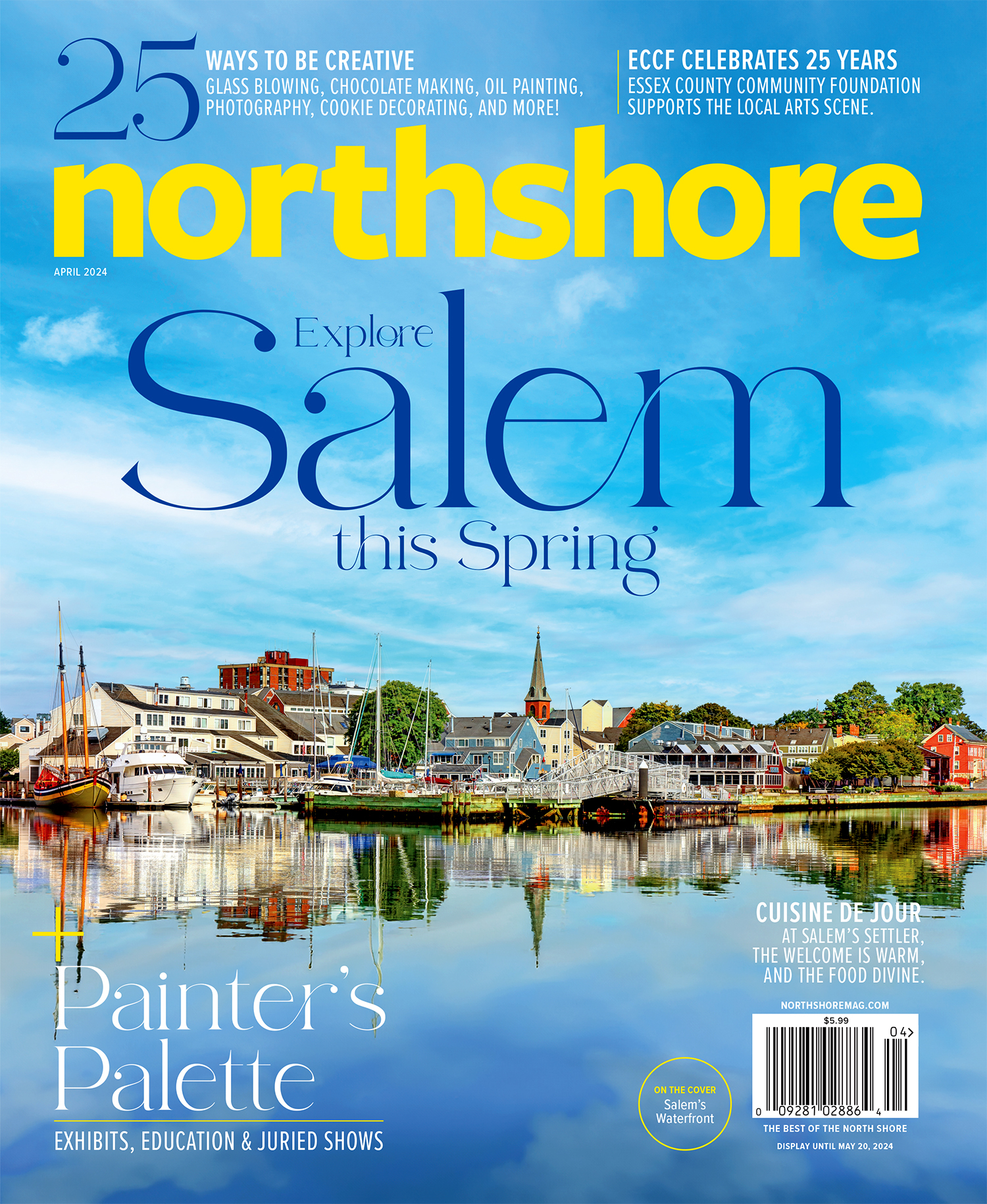When someone saunters down the streets of Salem on a sweltering summer day, wearing a black witch getup and makeup, locals question whether the Witch City will ever shake its spooky past. But in Salem, one is never far from history. During the summer of 1692, hundreds of people were accused of practicing witchcraft. The hysteria began in Danvers and spread as far north as Maine before it ended in the execution of innocent victims. Today, a dogged volunteer group is working to make sure we never forget.
Using the lessons of the Salem Witch Trials, the Salem Award Foundation (SAF) works to support human rights, tolerance, and social justice. Established 25 years ago to honor the historic victims of the witch trials and to celebrate modern-day activists, the SAF seems more relevant than ever with an opportunity to help the Salem community as it transforms into a hub of creativity and diversity, as well as helping other communities around the world.
“The events of 1692 continue to resonate today,” says SAF co-chair Sarah Morrill. “We still face the impact of reactionary policies that divide us, decisions driven by fear, and the social anxiety that threatens the marginalized,” says Morrill. This is why she and those who give their time to SAF believe it’s up to them “to own our history in an active way.”
The winner of the annual Salem Award for Social Justice and Human Rights will be announced this fall. Past winners include Thomas Doyle, who, as an insider at the Vatican Embassy in Washington, discovered the cover-up of child sexual abuse by priests and blew the whistle on the scandal. Other recognized activists have championed several issues, including peace in Sudan, affordable housing in Boston, migrant worker rights, and veteran post-traumatic stress disorder.
In 2016, the award went to longtime Swampscott resident Anne Driscoll, who has worked to overturn wrongful convictions since 2006. That year, the social worker and journalist joined the Justice Project at Brandeis University and has dedicated nearly a decade to freeing Angel Echavarria of Lynn who was serving a life sentence for a 1994 murder he did not commit.
Starting this year, SAF is recognizing a second category, the Salem Advocate for Social Justice Award. It goes to multi-Grammy Award winner John Legend, who will speak and perform March 30 at the Salem State Speaker Series.
At the end of Obama’s presidency, Legend, whose own mother suffered from depression and was incarcerated for drugs, wrote an open letter to the outgoing president on behalf of federal inmates, asking the president to pardon nonviolent drug offenders and end the mass incarceration that has resulted from outdated drug crime policies. He wrote: “Before you leave office, I would like to add my voice to the more than two million Americans who have asked you to use your clemency and pardon powers to bring justice to the thousands of families of nonviolent drug offenders who have waited far too long for Congress to act.”
On this 325th anniversary of the Salem Witch Trials, the Witch City’s unfolding history seems to keep pace with mounting national headlines of social injustice. A year ago, a research team that included the Salem Award Foundation and scholars from Salem State and the University of Virginia confirmed the execution site. The discovery confirms that the local hysteria ended at a wooded area overlooking Boston Street known as Procter’s Point, now a residential neighborhood. The Gallows Hill Project team based its findings on the early 20th-century research of historian Sidney Perley, eyewitness accounts from the trial papers, period maps, and newer technology such as ground-penetrating radar and high-tech aerial photography. A new low-key memorial will be unveiled this summer at the site. An oak tree, plaque, and 19 lights will memorialize the 19 people whose lives ended at the spot.
“Wherever I go, anywhere in the world, people know about the Salem Witch Trials,” says SAF co-chair Elizabeth Lahikainen. “Indeed, thousands visit our city every year because of that history.”
The Charter Street Witch Trials Memorial, funded by a grant from the National Endowment for the Arts and dedicated in August 1992 by the late Holocaust survivor and Nobel laureate Elie Wiesel, sees more than 600,000 visitors annually. Next to one of the country’s oldest burying grounds, the memorial begins with a granite threshold inscribed with the victims’ protests of innocence, taken from trial transcripts. These protests are interrupted mid-sentence by a wall symbolizing society’s indifference to oppression. Within the memorial are locust trees, the last to flower and the first to lose their leaves, representing the stark injustice. At the far end of the memorial, visitors view the tombstones of the adjacent 17th-century Charter Street Burying Point. These serve as a reminder of all who stood in mute witness to the hysteria.
The memorial was renovated and rededicated in 2012 by the City of Salem, the Peabody Essex Museum, and SAF, who work to maintain the heavily trafficked memorial while ensuring it continues to serve as a connection to events happening today.
SAF has offered a series of 15-minute Tent Talks at the memorial to bring visibility to issues of human rights and social justice in contemporary society. The talks have included Salem State University (SSU) professor Avi Chomsky on immigration and SSU vice president John Keenan on what it means to be a descendant of the accused. In June, the organization is planning a Salem Trials symposium at Salem State and a community-wide anniversary celebration that includes the Rising Leader Award for Salem public school juniors and seniors who exhibit strong interest and leadership in social justice.
“We are immensely proud of the work the Salem Award Foundation has done over the past 25 years to make sure the lessons of the trials are not sensationalized, but remembered,” says Lahikainen. “And [we] are excited by the possibilities coming out of the work before us in our anniversary year and beyond.”

